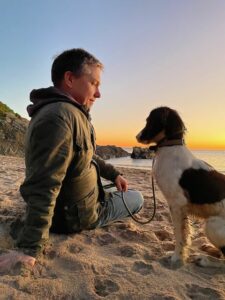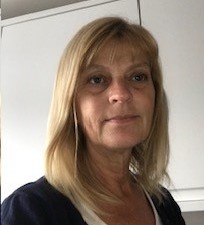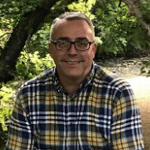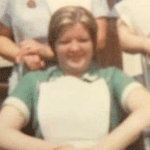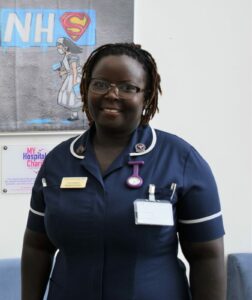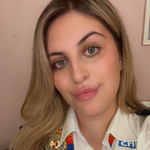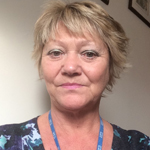Staff stories
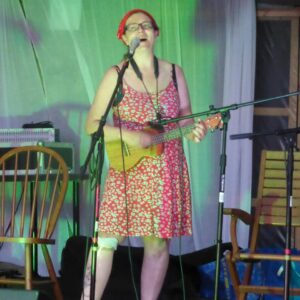 Zed Moore
Zed Moore
Primary Care Transformation Manager, South West
When did you start in the NHS?
2002
Why did you choose the NHS?
I began painful medical interventions when I was about an hour old. There’s never going to be a year in my life when I don’t need to NHS and its care. This made the NHS the organisation that I believed in above any other.
The challenges I faced were many and varied and it gave me a brilliant toolbox – so much practice in resilience, re-framing, silver-lining, finding and dreaming up creative solutions! I love every opportunity to reap the benefits from the challenges I have faced.
I was also aware that I have a set of experiences that one can neither learn nor buy and I felt that had some value, especially in understanding how it feels to be a patient.
Twenty-one years down the line (most of it spent in transformation and development of primary care services in a million guises), I am still learning every day, still passionate about what we do and still hopefully helping to affect positive culture change.
We have come so far and still have a long way to go.
Describe what you do in 100 words.
I am a Programme Manager in General Practice Transformation.
Right now, I am involved in workforce programmes which involve really exciting changes you will see in your own GP practice – have you noticed, for example, a paramedic, a physiotherapist, an occupational therapist, a podiatrist or a physician’s associate join your practice team of late?
My team helps support this programme and many others.
What do you enjoy most about your role?
I enjoy the variety of what we do. I like people and get to work with lots of them across the whole South West. I love collaboration and finding elegant solutions to complex problems. Sometimes, I can see the direct benefit for patients and then I am really on cloud nine!
I also love contributing to our culture and the Equality, Diversity and Inclusion (EDI) agenda as EDI Champion for commissioning and co-chair of the South West Disability and Wellbeing Network (DaWN), by bringing my whole self to work and encouraging and supporting others to do the same.
What would you say to someone thinking about a career in the NHS?
There are so many options and choices! We need all the different skills and approaches in our population. Please join our wonderful work family and help it be even better!
Describe the NHS in one word.
TEAM.
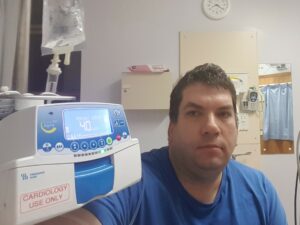 Jono Broad
Jono Broad
Integrated Personalised Care team, South West
When did you start in the NHS?
1 April 2021 (yes, April Fool’s Day!)
Why did you choose the NHS?
I am a long-term conditions patient and for 30 years volunteered for the NHS. So, when I was asked if I wanted to get paid for doing what I did as a volunteer, I simply said, ‘yes please!’
Describe what you do in 100 words.
I work with the Integrated Personalised Care team in the South West and support them to ensure that patients and the public are involved in our work in a meaningful way.
I also support the team with Quality Improvement methodology ensuring we use improvement tools to support teams across the NHS to deliver better personalised care.
My goal is to ensure that the human experience of healthcare is the best it can be for everyone.
What do you enjoy most about your role?
It has to be the wonderful people that I have the privilege to work with, and of course the people I get to support and help during our work.
What would you say to someone thinking about a career in the NHS?
Go for it, it is the most rewarding career choice you can make. You’ll work with brilliant likeminded people and it is a bonus that we get to really help improve people lives.
Describe the NHS in one word.
Extraordinary.
See below for more staff stories
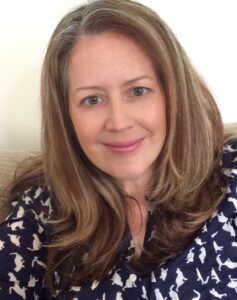 Caroline Lilley-Woolnough
Caroline Lilley-Woolnough
Personalised Care Manager, South West
When did you start in the NHS?
18 April 2012.
Why did you choose the NHS?
I wanted to share my skills set in developing people and organisations where there was social purpose to improve people’s quality of life and care every day.
I am a Personalised Care Manager leading development of a South West Collaborative (50 people from 32 organisations) which has co-produced a new South West Personalised Care Health Coaching Programme.
The aim of the programme is to enable our people to further develop their skills, and confidence in delivering personalised care in practice.
Describe what you do in 100 words.
We have developed a quality assured skills escalator, 327 people including 20 trainers/facilitators in systems have taken part – our ambition is to reach everyone.
We are most proud that 97% participants report a change in their practice after the programme, and we are proud to be a finalist at the HSJ Partnership Awards.
What do you enjoy most about your role?
Seeing the difference my work does in giving people confidence to have personalised conversations, and the impact as a result on patients.
What would you say to someone thinking about a career in the NHS?
There is such a variety of opportunity for learning and development now open to you within the NHS. If you want to feel everyday you made a difference in people’s lives – this the organisation for you!
Describe the NHS in one word.
Resilient.
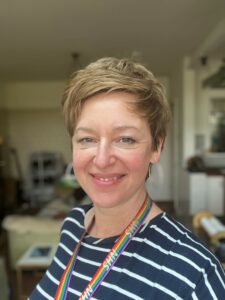 Nicola Nelson
Nicola Nelson
Quality and Safeguarding Manager and Lead Midwife for Maternity Continuity of Carer Programme, South West
When did you start in the NHS?
1989
Why did you choose the NHS?
I wanted to train as a nurse but at the age of 18, I didn’t fully understand what a unique and amazing organisation the NHS is. Only as time has gone by, I have come to fully understand this, and I feel so proud to be a part of it.
Describe what you do in 100 words.
I have two jobs currently; I work for NHS England as a Quality and Safeguarding Manager (in my capacity as a nurse). This means working with healthcare provider organisations to ensure their services offer the highest quality, and safest care possible.
My other job (in my capacity as a midwife) is the Lead Midwife for the maternity continuity of carer programme in the South West.
My two roles are really quite different which I like. In my Quality and Safeguarding role, I need to be able to understand how provider organisations report quality metrics but to always keep sight of the patients and people behind the numbers.
I really enjoy being a safe space for provider organisations to think out loud about how they can make improvements, but I also enjoy being the person that gets to point out to them what they are doing well.
Doing things well becomes second nature for a lot of services and they don’t even realise what a great job they are doing!
What do you enjoy most about your role?
In my midwifery role I find I get to be quite creative which I enjoy. There is a lot of project work, creating educational tools and connecting midwives across the region so they get the opportunity to learn from each other and share best practice and celebrate their successes.
What would you say to someone thinking about a career in the NHS?
No matter what your role in the NHS, you will have the knowledge that you are contributing to one of the most unique services in the world.
Working patterns in the past have made it difficult for people to think about joining, but now offer great flexible working patterns, and part time or job share roles.
To be future-ready, the NHS needs more compassionate and caring employees who reflect the local communities which we serve.
There are also great opportunities to learn and advance your skills so be alert to these and the sky is the limit!
Describe the NHS in one word.
Unique.
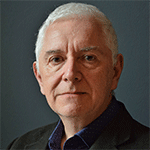 Geoff Sanford
Geoff Sanford
Team Director, London.
When did you start in the NHS?
August 1983!
Why did you choose the NHS?
I was attracted by the values associated with being a public servant.
Describe what you do in 100 words.
I’m a director of the team that provides consultancy services to NHS services as a real alternative to using the private sector. I help to shape the strategy and direction of the team, concentrating on commercial aspects such as prices and productivity. I’m also an expert in delivering complex large-scale change projects and get asked by clients to advise them on how to deliver successful transformation projects.
What do you enjoy most about your role?
Developing people’s knowledge and skills. Finding innovative solutions to problems.
What would you say to someone thinking about a career in the NHS?
There will be moments of real satisfaction and gratification when you work on something that genuinely makes the service better and mean people have a better experience of the NHS as a result – but also there will be moments of frustration and anger at the things that could be so much better “if only…”
Describe the NHS in one word.
Extraordinary.
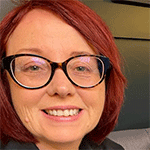 Victoria Nock
Victoria Nock
Programme Lead, Advancing Mental Health Equalities (AMHE) programme, London.
When did you start in the NHS?
June 2021
Why did you choose the NHS?
I was inspired by my partner’s NHS job while I was working from home during lockdown.
Describe what you do in 100 words.
I am the Programme Lead for the new regional Advancing Mental Health Equalities (AMHE) programme which is a key priority for the recently established London Mental Health Board. The AMHE regional programme aspires for a collective impact approach through meaningful structural, systematic, and cultural change, supporting enablement for integrated care boards (ICBs) and providers across London to progress this important agenda whilst complementing both national and other regional work that is already happening in this space.
The programme team are currently mobilising the AMHE steering group to meet mid-July 2023. The steering group will provide leadership, direction, and oversight to the programme with scope, approach, and initial activities. The programme is focused on forming a diverse and representative steering group, with members drawn from ICBs, national NHS England and the London region, clinical experts, and third sector organisations, with a strong emphasis on lived experience and carers.
What do you enjoy most about your role?
My colleagues who are amazing!
What would you say to someone thinking about a career in the NHS?
Do some background reading & check out all the various roles that are on offer. Talk to people you know work for the NHS to find out what it’s like to work here. Consider some volunteering or joining a patient participation group for your area.
Describe the NHS in one word.
Irreplaceable.
Milina Caley 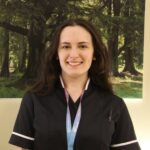
Anatomical Pathology Technologist
When did you start in the NHS?
2020, when I was 18.
Why did you choose to work in the NHS?
I was studying to be a makeup artist and working part-time in a beauty salon when the Covid-19 pandemic hit. When the salon closed I took on a temporary job as a mortuary assistant and loved it so much, I ended up staying. I wanted to be a part of a team that was care and quality driven; somewhere I felt like my role was making a difference and my work was genuinely helping people.
Describe what you do in 100 words.
My job is to assist pathologists during post mortem examinations, but I also cover many different areas in the department. This includes liaising with family members and other professionals, and arranging and conducting viewings for loved ones.
Above all, my work is about caring. It gives myself and my team great pride in delivering excellent care to the patient and their families.
What do you enjoy most about your role?
I love being able to provide a high level of care for our patients. I find comfort in knowing that if one of my loved ones passed away and was looked after by others like me, they would be in safe hands. There is a great deal of respect and honour in the job we do, it is something that we never take for granted and always work hard to maintain.
How would you describe the NHS in one word?
Everyone’s. Provided by everyone, used by everyone, delivered by everyone.
 Nora Latapi-Dean (she/her)
Nora Latapi-Dean (she/her)
Regional Diversity, Inclusion and Participation Manager – South West
When did you start in the NHS?
My very first role was in 2013, I worked as an Outpatients Team Leader in Surrey. Due to health issues I had to reconsider my future and left to complete a Psychology degree. I returned to the NHS in 2021.
Why did you choose to work in the NHS?
I spent a decade in the USA where there is no access to universal healthcare; this experience gave me a real appreciation for the NHS.
I know what it is like to live without it, and therefore I do not take it for granted. I know that the NHS benefits our whole society and is an organisation worth fighting for.
Describe what you do in 100 words.
I work as a Regional Diversity, Inclusion & Participation Manager in the South West which means I work to prioritise and deliver the NHS’s equality, diversity and inclusion (EDI) goals and ambitions.
I do this by leading and supporting projects that aim to educate people on diversity and inclusion as well as projects that aim to provide opportunities to level the playing field, especially for those belonging to historically and systemically marginalised and underrepresented communities.
What do you enjoy most about your role?
I value that I can use my own experiences and previous university research as a base for my work.
Most of all, I love knowing that my job (in simple terms) is to be an advocate for all – I find it truly galvanising when I reflect on the fact that I get to use my privilege to ensure that marginalised and underrepresented voices are amplified.
It’s easy to say, ‘that’s just how things are.’ Well, they don’t have to be: we all have a voice, so use it to change society for the better.
What would you say to someone thinking about a career in the NHS?
Do it! There is something particularly rewarding about working for an organisation that serves our communities.
If you care about people, join us. Together is better and together we can make the NHS a better place!
How would you describe the NHS in one word?
Irreplaceable.
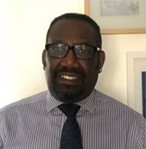 David Corbin
David Corbin
Equality, Diversity and Inclusion Manager – WRES South West
When did you start in the NHS?
September 2008
Why did you choose to work in the NHS?
I wanted to be in a position where I could make a difference and help people.
Describe what you do in 100 words
In my current role I support all the South West Provider Services to meet the requirements of the Workforce Race Equality Standard and the Workforce Disability Equality Standard. This means working closely with the Equality, Diversity and Inclusion Leads across the South West.
I’m also a Freedom to Speak Up Guardian, A Mental Health First Aider and a Workplace Mediator.
What do you enjoy most about your role?
It has to be supporting individuals through difficult situations to achieve positive outcomes for them, the NHS and their teams. This can be anything from work related pressure or difficult personal situations which have a negative impact on the individual, their wellbeing and ultimately their performance at work.
What would you say to someone thinking about a career in the NHS?
Working in the NHS is an extremely rewarding vocation. There is so much more to the NHS than Doctors and Nurses. Yes, they are essential, but there are so many other teams of dedicated staff. The way we work, even in difficult situations, as the COVID-19 pandemic has shown, is exemplary. So many people give up so much time, effort and goodwill to support others. It’s amazing to be part of it. The positive contributions can sometimes go unnoticed but there are so many unsung heroes in the NHS. After nearly 15 years I’m still proud to be part of the NHS.
How would you describe the NHS in one word?
Indispensable!
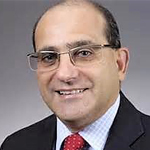 Michael Wheeler
Michael Wheeler
NHS England Workforce, Training and Education Dental Hygienist and Dental Workforce Lead Tutor
When did you start in the NHS?
1997 after 23 years in the Royal Air Force
Why did you choose to work in the NHS?
It provided an opportunity to carry out a wide variety of roles, rather than general dental practice.
Describe what you do in 100 words.
Only 100 words! Currently, I work three days a week, one day per week as lead for dental care professionals in the South West, which in part covers maternity leave, but I also lead on the wider dental workforce issues across the South West. In addition, I have oversight of the regional mouthcare matters team, which with a great deal of support from the wider dental deanery team we set up in 2018. For two days a week, I am the national dental workforce advisor which in real terms is a programme manager for the dental apprenticeships taking the lead on their development and then working with employers and training providers on ensuring the delivery of the current seven dedicated dental apprenticeships. This involves working with a wide range of stakeholders, which I enjoy and currently working with skills for health and other partners on the development of dental hygienist apprenticeships, which will provide greater opportunities for the dental nurse workforce to progress.
What do you enjoy most about your role?
The diversity of the role, and the very wide range of people I met, even via MS Teams!
What would you say to someone thinking about a career in the NHS?
Join! Many Dental Hygienists and other members of the dental team often outline the limited opportunities in general dental practice. Over the last 26 years, I have never stood still, the NHS provides opportunities both in training and career advancements.
How would you describe the NHS in one word?
Fabulous!
Graham Carr
Head of Learning Disability and Autism – South West.
When did you start working in the NHS?
2002.
Why did you choose to work in the NHS?
Prior to joining the NHS, I worked as a care assistant with older adults. As a care assistant I found social interaction the most rewarding aspect of the role which led me to train as a mental health nurse.
Describe what you do:
There is so much variety in my role as head of programme. I would say my role is to support the great ideas and passion of my excellent team and friends of the programme to deliver improved health and wellbeing outcomes for people with a learning disability or autism.
I have a focus on ensuring that people are empowered to receive care at or close to home, and delivered in a way that is both accessible and personalised to their individual needs.
What do you enjoy most about your role?
I love it that our team does not work in isolation. We have so much support from colleagues across NHS England South West including Quality, Screening & Immunisation, Digital, CYP Transformation personalisation & Communications to name a few.
Better still, we have a whole community of engaged people who not only want to promote change but actively participate and create the change we want to see.
The Learning Disability and Autism programme works alongside our regional parent carer forums, advocacy and self advocacy groups for adults and young people to develop, create, plan, scheme and dream together.
What would you say to someone thinking about a career in the NHS?
There is so much variety in the NHS; whether you want to be highly specialised or take a broad matrix approach the NHS has the flexibility and diversity to deliver this.
The NHS is an organisation that can scale to your own ambition.
How would you describe the NHS in one word?
Inclusive.
Nikki Churchley
Mental Health and Programme of Care Lead – South West.
When did you start working in the NHS?
1983.
Why did you choose to work in the NHS?
I always wanted to be a nurse. I then wanted to be a midwife but back then the waiting list to start the training was two years so I changed pathways and moved into mental health.
Describe what you do:
I am a nurse by background and worked in secure services for 24 years before moving into NHS England’s Specialised Commissioning team in 2013.
In my current role I have oversight of all specialised mental health services, including secure, child and adolescent mental health services (CAMHS), adult eating disorder, perinatal, gender and some elements of T4 personality disorder.
Over the years my role has changed and is now more of an assurance role, overseeing the provider collaboratives across the South West regional footprint.
I am also the regional link into the national specialised mental health team providing a bridge between national, regional and local provision.
What do you enjoy most about your role?
Working within mental health has been a real eye-opener. It has been a valuable and sometimes steep learning curve, but the skills and experiences have made me who I am.
It is a moving feast: always changing and never a dull moment. But the best bits, and what brings me the most enjoyment now, are visiting the services that sit within my portfolio, particularly having time to meet with staff and patients and hear their stories.
I have a great team working alongside me and have also met some lovely colleagues along the way, which all helps to make my role easier to carry out.
What would you say to someone thinking about a career in the NHS?
There are so many avenues to explore and it is a journey well worth taking. Career opportunities are vast and you can make a difference. Speak to people who work within the NHS and explore opportunities.
How would you describe the NHS in one word?
Transformational.
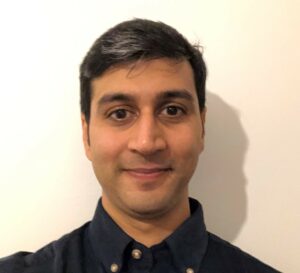 Girish Lakhanpal
Girish Lakhanpal
Advancing Practice Faculty, South West.
When did you start in the NHS?
2010
Why did you choose to work in the NHS?
The NHS appealed to me because its principle of providing healthcare to people on the basis of need rather than background or income. This resonated with me and mirrored my beliefs.
Describe what you do in 100 words:
I work for the Advancing Practice Faculty in the South West. This involves developing the advanced practice workforce across the region by supporting trainees to undertake the advanced practice MSc in order to improve the pathways and care they provide to patients.
My role involves working alongside healthcare and education providers to ensure they understand what advanced practice is, and the requirements of training an advanced practitioner, in order to provide a good environment for trainee advanced practitioners to learn and develop their skills.
What do you enjoy most about your role?
I enjoy getting feedback about how our trainees are progressing, and how they are improving patient journeys. It reminds me that although I may not be directly seeing patients, the work I do really does have an impact.
What would you say to someone thinking about a career in the NHS?
You never know where a career in the NHS might take you. You can do something you are interested in, or if you don’t know what you like yet, you can try different things until you find out.
In the NHS there are so many people from all walks of life, each with a great story. A career in the NHS will broaden your experiences, and that is always a good thing.
How would you describe the NHS in one word?
Stimulating.
Darren McGregor
Peer Support Facilitator, Cumbria, Northumberland, Tyne and Wear NHS Foundation Trust
When did you start in the NHS?
2020
Why did you choose to work in the NHS?
After a breakdown in 2014, I made a bad choice – I took heroin. Within a week I was addicted. During my time as an addict, I lost all my money, my belongings, and my children had to go and be taken care of by their grandparents.
I was also in and out of prison. During my final stint in prison, a prison officer recommended a residential rehabilitation service run by a charity. I really took to their peer-led programme and after 16 months I left the centre in recovery and with a passion to help others do the same.
Over the next few years I volunteered for several local support organisations and was thrilled to come across a job advert to work for Cumbria, Northumberland, Tyne and Wear NHS Foundation Trust (CNTW) as a Peer Supporter.
Describe what you do
As a Peer Supporter at Northumberland Recovery Partnership (NRP), I supported adults In Northumberland experiencing problems with drugs and alcohol. I used my own lived experience of addiction to offer them guidance, compassion and hope. I also helped staff to empathise with and understand those they care for.
In June 2022 I progressed into the leadership role of a Peer Support Facilitator, supporting peers supporters who use their lived experience to support the development and wellbeing of service users across the Trust. I’m very passionate about peer support and know the value and connection it brings to services and patients.
What do you enjoy most about your role?
My job now is to support peer supporters to develop their skills and support their wellbeing. It is great seeing peer supporters connect and support service users and being creative in what they do. Peer support is a growing workforce, many services are seeing how valuable it is to have peer supporters draw on their lived experience to support patients and work alongside clinicians. I am very proud to be a part of peer support within CNTW as it brings hope to many people!
What would you say to someone thinking about a career in the NHS?
I would encourage someone to join the NHS. My experience has been superb, I have always felt supported. I have been given many opportunities, I have studied and gained my Senior Health Care Level 3 as well as gaining my English and Maths Level 2, these qualifications have helped me progress in my career. I started out as a Peer Supporter then progressed to a Senior Peer Supporter and now I’m a Peer Support Facilitator within the leadership of the Peer Support Workforce and part of an amazing Team. I will be forever grateful to CNTW giving me a new career and a job I adore.
How would you describe the NHS in one word?
Kind.
Eileen Eve
Community Practitioner in the Older Peoples Community Mental Health Team, North Cumbria
When did you start in the NHS?
I am the longest serving member of staff at Cumbria, Northumberland and Tyne and Wear NHS trust, having worked in the NHS for 50 years!
Why did you choose to work in the NHS?
I was drawn to working in healthcare as many of the people around here were employed at local hospitals. I originally applied to undertake my general nursing training at the large Cumberland Infirmary in Carlisle, but at the time the hospital was inundated with applications. They were only taking the people that were nearer 18 years old, but I wasn’t even 17 at the time, and so they said I should go to the college for a year and then reapply. But I didn’t want to do that. I wanted to start work in the NHS straight away.
So, I applied to The Garlands hospital, local to me, because my mum had worked there; in fact, where I lived a lot of people worked there, it was like a little community working. I thought, I’ll go there for the year and then I’ll apply back at the Infirmary to do my general nursing. But it didn’t happen – I stayed where I was, and never looked back!
Describe what you do
From the beginning I liked working with the elderly, looking after them, making sure they were fed and comfortable, and just generally supporting them. I worked on various elderly wards, including what we called the long-stay wards. There were patients there who had been in the hospital since after the war in the 1950s. Most of them had no family, so we become their family. Throughout the rest of my career, I’ve been focussed on elderly care.
From there, I moved to nursing in the community, supporting those patients out in their own homes. I have seen some dramatic shifts in how mental health care is provided. Now it’s changing and improving all the time, and the team I work for strive all the time for further changes to keep making things better for people. Patients are looked at as individuals now, rather than all being treated the same as they were years ago.
I now work in the Memory and Later life Service at CNTW. I specifically see patients who are on our Vascular Pathway, which means that I take on any referrals that come in for people who’ve been recently diagnosed with vascular dementia or dementia in people with Parkinson’s disease. I visit them in their local community, to support them and their families.
I think the biggest changes I’ve seen over my nursing career is that we now focus on trying to keep people at home as long as possible. For carers, that can be really hard because they’ve got them 24/7, but it’s also much nicer to see them in their own home, in their own surroundings.
What do you enjoy most about your role?
I just like caring for people! And I’ve met some lovely people. Over the years I’ve worked with a lot of nice people and made lot of lifelong friends. And relatives and carers of people I’ve supported will often stop and speak to me when I’m out. I still get the odd Christmas card off some relatives! So it really makes the job worthwhile, knowing that they appreciate what you do.
Sometimes you go and people are struggling, and you come away thinking, ‘I’ve just left them in the same situation’ – but they’re always pleased that you’ve been and talked to them. I think that’s the important thing for them, knowing there’s somebody there, that they’re not alone.
I had planned to retire a couple of years ago, but I had to take time off work due to having breast cancer. I didn’t want to finish because of the cancer; I wanted to finish when I wanted to finish! Then, although I’d planned to retire in 2020, when the pandemic hit the country, I decided I had to stay on. I’m glad I did. It was important to help out and do my bit of course, but also it meant I had something I really like to do, to keep me going through the week!
What would you say to someone thinking about a career in the NHS?
I would say get some experience first before you go and do your training. Some people go straight on to do the training for three years and then find out it’s not for them. Get some experience in a caring role, in a care home for example. This kind of role, if you’re not 100% about wanting to care for people, it’s not a job you can do really, because you’ve got to be focussed on it – it can be very full-on.
Nchima Chulu Mwaba
When did you start in the NHS?
I joined the NHS on 10 March 2003 at Mid Yorkshire Trust, as a staff nurse.
Why did you choose to work in the NHS?
I trained at an acute university teaching hospital in Lusaka, Zambia. Some of our educators had trained or worked in UK and told us about the health services here.
One of them – Mrs Gardner, our Clinical Educator for the Gynae Department – was very skilled, competent, and passionate about teaching and nursing. I was inspired and enjoyed that placement very much.
I used to wonder about working in the NHS from her stories. So, when the opportunity to come and work in the UK came up, I took it. The agency that brought me over recruited me to a care home in Leeds; after I got my PIN, I applied to Mid Yorks, and have been here since.
Describe what you do in 100 words?
I am a Lead Clinical Educator in the Professional Development and Education Unit (PDEU) at Mid Yorkshire Teaching Trust. I lead on the Preceptorship programme for our nursing workforce new to the profession or the NHS.
Our team supports recruitment, onboarding process of nurses and aid settling into their new roles. We deliver teaching and develop key skills and knowledge as they transition into autonomous practitioners. We offer pastoral care support during the preceptorship period to aid settling. This helps new staff feel safe and supported in their early years as a registrant and improving patient safety and outcomes.
What do you most enjoy about your role?
I enjoy teaching and coaching staff. The opportunity to enable and facilitate nurses to be the best they can be for themselves, their patients, and their communities. To be part of someone’s growth and see them thrive because they have been supported, gives me great job satisfaction.
I am a firm believer that if our staff are happy and feel supported, they will deliver their best and compassionate care, and thus improve our patients’ experiences.
How would you describe the NHS in one word?
Amazing!
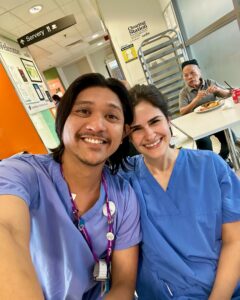
Shalom Rey Lumanlan
Job title:
Specialist Nurse – Organ Donation, NHS Blood and Transplant.
When did you start in the NHS?
I joined the NHS in September 2009.
Why did you choose to work in the NHS?
I graduated from my nursing degree in the Philippines and have always been passionate about nursing. I think a big factor to this is that I come from a family of healthcare providers who have been very supportive in pursuing my dream of working in this field.
Describe what you do in 100 words?
Being part of the critical care team of a leading trauma hospital gave me exposure to a variety of disciplines. This is where I saw first-hand the importance of the role of Specialist Nurse in Organ Donation which sparked my interest and led me applying for the role.
I regularly deal with families in difficult situations. The importance of listening while showing deep empathy and compassion is vital, however at the same time being transparent is very crucial. My ultimate goal as a Specialist Nurse in Organ Donation is to provide the best end-of-life care, empathetically discuss organ donation and facilitate this process.
What do you most enjoy about your role?
The variety of what being a Specialist Nurse in Organ Donation brings in a day to day basis makes my role unique and exciting. There are days where I do audits, teach staff, support families or engage in community events. Since I cover a lot of hospitals when on-call, I meet a lot of people and learn from their experiences. Ultimately, being able to give time and listen to families in a very difficult position is very rewarding.
How would you describe the NHS in one word?
Awesome.
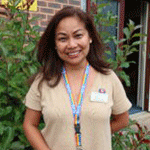 Mymy Del Rosario
Mymy Del Rosario
Job title:
Matron for Education at Mid Yorkshire Teaching NHS Trust
When did you start in the NHS?
I started working in the NHS in 2003.
Why did you choose to work in the NHS?
I chose the NHS because it offers a multicultural environment where my contribution as an internationally educated nurse will be fostered and appreciated. I wanted to be part of an organisation that provides excellent standards of care to the public and gives a good work-life balance for its employees.
Describe what you do in 100 words?
I am a Matron for Education at Adult Community Services. My role has various components which makes it very interesting. I provide leadership to the Community Education team to support the education and training needs of our community staff. I am also involved in workforce and resource planning; we aim for a high standard training programme that is tailored to individual staff needs so they can thrive and be confident in the care they provide to our patients. My role involves systems collaboration and networking to enable new initiatives across partner organisations. I champion diversity, inclusion and compassionate leadership. I am passionate about improving patient experience and reducing health inequalities.
What do you most enjoy about your role?
The element that I enjoy most in my role is workforce engagement. I believe that if our staff are happy and well supported, this will positively impact the quality of care that we deliver to our patients and the community that we serve.
How would you describe the NHS in one word?
Inclusive.
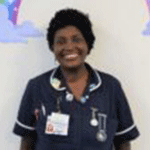 Beauty Kasani-Hall
Beauty Kasani-Hall
Practice Educator at Mid Yorkshire Teaching NHS Trust
When did you start in the NHS?
I started working for the NHS in 2004.
Why did you choose to work in the NHS?
I chose to work for the NHS as it has a positive impact on people’s lives through providing world class patient care, being able to influence decisions about future healthcare, and working alongside proud, talented and hard-working professionals.
Describe what you do in 100 words?
My role is very exciting, challenging and involves providing education and training to multidisciplinary staff whilst also assisting in the delivery of training programmes to students, registered nurses and other non-medical workforce to expand their skills and expertise. I provide comprehensive pastoral visits for learners in clinical areas. I also deliver the Objective Structured Clinical Examination training; contributing towards internationally educated nurses achieving a sense of belonging, in order to stay and thrive in the United Kingdom.
My role is a combination of positive role modelling, supervising, supporting, enabling, coaching, mentoring and teaching.
What do you most enjoy about your role?
I enjoy being able to positively impact the current and future practice of nursing through the education I provide to nursing students, internationally educated nurses and student nurses. I am very passionate in helping new staff, especially the internationally educated nurses settle in a new country, and this contributes positively towards staff experience and retention.
How would you describe the NHS in one word?
Exquisite.
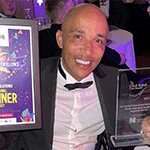 Adrian Anim
Adrian Anim
Community Nurse Practitioner, Cumbria, Northumberland, Tyne and Wear NHS Foundation Trust
When did you start in the NHS?
2014
Why did you choose to work in the NHS?
I worked as a decorator for 20 years before deciding to switch careers, beginning my studies at Northumbria University to become a nurse at 40.
I had been decorating some homes for people with learning disabilities, and I absolutely loved being around them, engaging with them – I spent more time talking than painting!
It was from there that I decided to work as a support worker for a few years, before applying to university to qualify as a nurse. Having left school with no qualifications, I completed different courses and went to evening classes to gain what I needed to be accepted onto the course. I wanted to be part of the NHS to provide equitable healthcare to people with learning disabilities and to champion their rights. I feel doing so in the NHS has a greater impact. I wanted to be part of a service which improves people’s lives and feel my own values and ethos align with the NHS values.
Describe what you do in 100 words?
I am a Nurse providing specialist healthcare and support to people with a learning disability, as well as their families and carers, helping them live meaningful and fulfilling lives, reach their potential and what is important to them.
My work looks at improving or maintaining a person’s physical and mental health, ensuring their health and care needs are met. My role looks at reducing barriers to patients/service users living an independent and improved quality of life.
Through this, my work aims to help others lead a more independent and healthy life where they can relate to others on equitable terms.
What do you most enjoy about your role?
I love meeting with patients, families, and care staff, delivering choice, inclusion, control and empowerment and most importantly, I love seeing the positive impact our work can have on people – seeing patients’ quality of life significantly improve. I feel I am a hardworking, dedicated, empathetic, driven, caring, fun, passionate, person centred and a systemically holistic practitioner.
What would you say to someone thinking about a career in the NHS?
It’s an opportunity to work within a supportive environment, with many career options, whilst offering a variety of opportunities to personally and professionally develop. Ultimately you can be part of something making incredible differences to the lives of patients, families, carers and our colleagues.
How would you describe the NHS in one word?
Essential.
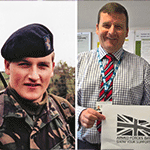 Richard Lloyd
Richard Lloyd
Head of Business Development (Finance) for North Cumbria, Cumbria, Northumberland, Tyne and Wear NHS Foundation Trust.
When did you start in the NHS?
2016
Why did you choose to work in the NHS?
I served in the Army for 28 years. After I left in 2012, I set up a small family business. Although my business was successful, I was missing being part of a large service team and I didn’t feel I was making full use of the qualifications and experience I had gained during my military career.
I saw Step into Health, a programme which connects members of the Armed Forces community to NHS career pathways, advertised on a military resettlement and employment website. After attending an information day and a work experience placement at an NHS Trust, I left feeling that the NHS offered an exciting opportunity for a worthwhile second career.
Describe what you do in 100 words?
I support a mental health organisation which covers North Cumbria and the North East of England. I am responsible for the prudent financial management of resources as well as being involved in various projects and contract negotiations with suppliers and other health partners. It’s a varied and demanding role that requires interaction with all levels of staff from frontline clinicians to the Chief Executive. I also co-chair the Armed Forces & Veterans Staff Network for CNTW. This network seeks to support staff who are ex-forces or have military connections, liaises with our Veterans Mental health Services and also actively supports the recruitment of former military staff.
What do you most enjoy about your role?
Working in the field of mental health has been a real learning curve for me, but one which I’ve found invigorating and enjoyable. My colleagues are very supportive, and the culture within CNTW is hugely positive and progressive. I get immense satisfaction from supporting the frontline staff and management by obtaining the best resources possible and sorting out problems of all shapes and sizes. I also enjoy sharing some humour and banter to help alleviate some of the stress that colleagues experience!
What would you say to someone thinking about a career in the NHS?
You don’t need to have a clinical background to join the NHS; there is such a wide range of roles and services. There are excellent opportunities for development, training and promotion.
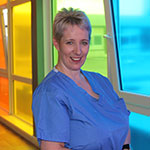 Linda Robinson
Linda Robinson
Theatre Nurse.
When did you start in the NHS?
1997 as a domestic. I then trained to become a nurse in 2012, qualifying in 2015.
Why did you choose the NHS?
My dream has always been to be a nurse but I got married and had my children young, it is now my time to pursue a career in the medical profession. At 46 years old I completed my Adult Nursing degree at Teesside University, something I never thought was possible for me to achieve. What a journey it was! It was hard but fantastic being out there, living my dream.
Describe what you do in 100 words?
My role throughout the surgical procedure, as a scrub nurse, is to maintain a sterile environment, minimizing surgical site infection. I enjoy working for the NHS, I love its embedded strategies, all the staff at North Tees and Hartlepool Trust have given me the opportunity and invested in me and been part of my journey. I am the practice placement facilitator for student nurses and I enjoy teaching as part of my role. Also, I take part in the safety supervision meetings; I am part of 100 leaders, and this has given me the confidence to believe in myself.
What do you enjoy most about your role?
Within my role, I love making a difference for patients and students. Making their journey a good experience by delivering the 6 cs and sharing my knowledge.
Describe the NHS in one word:
Empowering.
 Charlotte Ives
Charlotte Ives
System Transformation Lead.
When did you start in the NHS?
I started working for the NHS in 2008 as a contract support manager. Back then it was Devon Primary Care Trust!
Why did you choose to work in the NHS?
I have always been really interested in health generally, and knew I wanted to pursue a career that would lead me to working with a diverse set of people and with a diversity of opportunities. However, I did not have a clear vision of exactly what I wanted to do at that time.
Describe what you do in 100 words
I champion the voice, health and care of children and young people (CYP). Particularly those that experience inequalities, we use data and evidence to ensure this narrative lands in all NHS programmes. I lead CYP professionals and transformation activities across the South West region, working with and through integrated care boards (ICBs). I translate national and regional policy, so that we can come together across professions, systems, and networks to deliver improved healthcare outcomes for CYP. I deliver strategic change through programmes and projects and act as a conduit back to regional and national colleagues to influence continuous improvements.
What do you enjoy most about your role?
Working with such a diverse range of professionals, spotting their talent and expertise, bringing them together in networks and programmes to collectively achieve more for our CYP!
What would you say to someone thinking about a career in the NHS?
It would be an excellent career choice, with endless roles available. You can harness your passion, strengths and where your interests lie. I would say, reach out and talk to people that work in the NHS, explore the options and opportunities to further inform your choices. Don’t be constrained by job titles – the job is what you make it!
How would you describe the NHS in one word?
Spectacular.
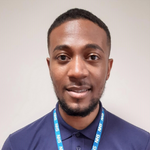 Louis Palmer
Louis Palmer
Clinical Studies Officer in Clinical Research Network (CRN) and Ethnic Minority Research Inclusion (EMRI) Hub Lead for South Yorkshire, Grounded Research Hub, Rotherham Doncaster and South Humber (RDaSH) NHS Foundation Trust.
When did you start in the NHS?
2017.
Why did you choose to work in the NHS?
I thought it would be a good employer to work for, I like working with people and wanted a role in healthcare after finishing my Neuroscience degree. Both my Mum and Nannan worked in the NHS so I heard a lot about it growing up.
Describe what you do in 100 words
I have two roles in research which makes my job varied. My first role is recruiting people to research studies as a Clinical Studies Officer for the Grounded Research team in RDaSH. We have several research areas including Mental Health, Public Health, Nutrition, Psychological Wellbeing and Occupational Health. I work across a few research studies, but my main area is trial management within the Rotherham, Doncaster and South Humber NHS Trust’s Centre for Nutrition and Behaviour, where I started my research career in 2017.
My role with the National Institute for Health and Care Research is with Ethnic Minority Research Inclusion (EMRI) and this involves working with community groups and researchers around the region to help make research more inclusive.
What do you enjoy most about your role?
I would say I enjoy helping people, and research at the core is always looking at new ways to help people get better no matter what the problem is.
How would you describe the NHS in one word?
Caring.
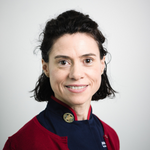 Alison Finch
Alison Finch
Assistant Chief Nurse for Research at University College London Hospitals NHS Foundation Trust.
When did you start in the NHS?
I first started working in the NHS as a student nurse in the early 1990s.
Why did you choose to work in the NHS?
To be honest, I think the NHS chose me. I had been undecided about which career path to take. Having first considered studying history, then speech and language therapy I changed tack and embarked on a nursing degree programme. My formative years most likely informed the direction that I followed – working as a care assistant in a local nursing home and as a cadet in St. John Ambulance provided a sense of what a career in the NHS might be like.
Describe what you do in 100 words
My role is varied and quite eclectic. I balance being a member of UCLH’s nursing and midwifery leadership team, in a role that supports the operational running of the hospitals, with responsibilities for professional standards and the development of nurses’ careers. I lead the development of nursing research across UCLH: driving evidenced based practice that leads to improvements in patient care and experience. I can sometimes be found on a clinical unit, at other times in a strategic planning meeting. As a cancer nurse, with clinical and research experience in the teenage and young adult cancer specialty, I also undertake and support projects or research in this area.
What do you enjoy most about your role?
I have always maintained that being a nurse is one of the most privileged positions within society. As someone who is professionally curious and up for a challenge – who thrives on human connection, teamwork and being of service to communities, I have always enjoyed all my roles in the NHS. In a career that now spans four decades, I have never not enjoyed my work.
How would you describe the NHS in one word?
Committed.
 Dr Md Yuzaiful Md Yusof
Dr Md Yuzaiful Md Yusof
(First Name: Md Yuzaiful; Last name: Md Yusof)
Consultant Rheumatologist and Senior Research Fellow, Leeds Teaching Hospitals NHS Trust and University of Leeds.
When did you start in the NHS?
August 2008.
Why did you choose to work in the NHS?
I have worked in the NHS for the last 15 years. Working in the NHS has allowed me to work with highly skilled and talented professionals. When I was a Junior Doctor, I was inspired by consultants who had demonstrated outstanding clinical and academic achievements whilst finding the right work-life balance. As I progress through my career, I have followed their footsteps from being appropriately supported by senior doctors and professionals to now offering guidance and mentorship to my junior colleagues and healthcare professionals. I have thoroughly enjoyed working and leading a team, as a part of the larger NHS family which have enabled high-quality, fair, and patient-centred care be delivered to our patients.
Describe what you do in 100 words
I am a clinical academic in the field of rheumatology. In addition to providing clinical care in clinics and in the wards, a proportion of my time is dedicated for research to improve the outcomes of people living with Systemic Lupus Erythematosus (SLE). SLE is a lifelong autoimmune disease which causes inflammation to any part of the body. Symptoms include rash, hair loss, joint pain and some can develop organ failure. Because clinical features are variable in SLE, we would like to move away from the traditional one-size-fits-all therapy approach in treating patients. The aim of my research is to develop new approaches so that the right treatment, first time can be offered to people living with SLE. In my recent research, I developed an innovative approach by repurposing an existing systemically-delivered drug, etanercept, and delivering it locally via an intradermal route to treat the most disfiguring form of skin lupus (discoid lupus, DLE). I was the Principal Investigator of a phase II trial (TARGET-DLE) which was funded by National Institute for Health and Care Research (NIHR) Doctoral Research Fellowship, collaborating with Leeds Clinical Trials Unit. This research was also supported by the NIHR Clinical Research Network and the NIHR Leeds Biomedical Research Centre (BRC). My role was to oversee the day-to-day running of the study and ensure that all team members adhered to the study protocol. All patients were recruited within the 18-month target and the study met its key objectives. This repurposed therapy has the potential to reduce systemic side-effects to the patients and cost. These findings will be used to inform a large-scale phase III trial that I plan to conduct in the next stage of my research. My research work is also fair and involved patients with various background and ethnicity. This approach improves generalisability of my findings.
What do you enjoy most about your role?
I am an innovator and being a clinical academic has allowed me to fulfil this ambition. Patient-centred has been the main focus of my research. My role has also allowed me to form collaboration with international lupus experts and industry partners in pioneering new treatment and strategies to improve the care of our patients.
How would you describe the NHS in one word?
Collaborative.
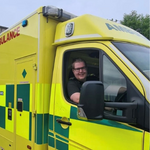 Jonathan Shaw
Jonathan Shaw
Paramedic, East of England Ambulance Service NHS Trust.
When did you start in the NHS?
November 2020.
Why did you choose to work in the NHS?
The NHS does amazing things for all of us, and I wanted to contribute as best as I can to them.
Describe what you do in 100 words
I am a front-line paramedic with the ambulance service. This means I spend my time in an ambulance attending patients when needed. I have a variety of training that allows me to respond to any type of emergency and treat patients. I work alongside a variety of other healthcare professionals to assess, treat, and manage medical situations.
What do you enjoy most about your role?
I am able to get an insight into other people’s lives just by attending them in their own home. I love hearing all their stories and how they’ve lived their lives.
How would you describe the NHS in one word?
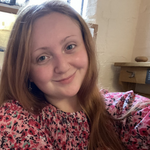 Alice Gains
Alice Gains
Assistant Psychologist, Child and Adolescent Mental Health Services (CAMHS).
When did you start in the NHS?
January 2023.
Why did you choose to work in the NHS?
I wanted to work in an environment where I can give people the time they need to talk through their concerns.
Describe what you do in 100 words
I am an assistant psychologist working in a multidisciplinary community mental health team supporting young people who are experiencing mental health challenges. Under supervision, I provide therapeutic interventions to young people and their families to understand and manage anxiety, stress, and emotional regulation. I also help with the autism and ADHD diagnostic pathway, by collecting evidence for such assessments from families and contributing to clinical discussions.
What do you enjoy most about your role?
I enjoy working with young people and their families. Working with colleagues, especially fellow assistant psychologists makes the job a joy. I find extremely rewarding that we, collaboratively, find solutions.
How would you describe the NHS in one word?
Excellent.
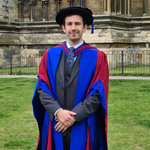 Gregory Whitley
Gregory Whitley
Paramedic Research Fellow, East Midlands Ambulance Service NHS Trust.
When did you start in the NHS?
July 2010.
Why did you choose to work in the NHS?
I always wanted to care for others. Fortunately, I found the ambulance service. My big green family have supported me for the last 12 years to increase the impact of my care through research.
Describe what you do in 100 words
I support the delivery of prehospital clinical trials and other research across the East Midlands Ambulance Service (EMAS). After completing my PhD and postdoctoral bridging award, I was fortunate to receive a Health Education England (HEE)/National Institute for Health and Care Research (NIHR) Advanced Clinical and Practitioner Academic Fellowship. Led by EMAS, in partnership with the University of Lincoln and supported by the NIHR Applied Research Collaboration East Midlands, this fellowship will fund a programme of research to design and test a new method to improve pain management for children and young people in the ambulance service.
What do you enjoy most about your role?
I enjoy answering complex clinical questions and generating new knowledge so that we can improve important health outcomes for the patients we serve. This helps NHS patients receive the highest possible quality of care.
How would you describe the NHS in one word?
Indispensable.
 Parveen Ali
Parveen Ali
Professor of Nursing and Gender-Based Violence, University of Sheffield and Doncaster and Bassetlaw Teaching Hospital Trust (DBTH)
When did you start in the NHS?
I started working at DBTH in September 2021.
Why did you choose to work in the NHS?
My role at DBTH is to lead research capacity development for nurses, midwives and Allied Health Professionals (NMAHPs).
Describe what you do in 100 words
I work as a professor of nursing and gender-based violence in the Health Sciences School and Doncaster and Bassetlaw Teaching Hospitals Trust (DBTH). I currently hold a number of leadership roles. My role at DBTH is to lead research capacity development for nurses, midwives and AHPs (NMAHPs). I am Director of the Master’s in Advanced Nursing Studies Programme, which delivers nurse / midwives teaching online and has been tailored for both national and international cohorts. I am also Deputy Director of Research and Innovation in the Health Sciences School of Sheffield, which is a more research focussed role. External to the university, I am a member of the Royal College of Nursing’s Research Committee. I am editor in chief of International Nursing Review, which is the official journal of the International Council of Nurses. I am also editorial board member of Nursing Open, Journal of Advanced Nursing and Journal of Interpersonal Violence. I contribute to various national and international bodies, and I am speciality lead for Age and Aging for CRN Yorkshire and Humber.
My research focusses on nurses and midwives’ preparation for practice, especially in topics such as gender-based violence, domestic violence and abuse, inequalities in health. As a mixed-method researcher, I have contributed to projects as principal investigator or co-investigator on topics include measuring knowledge, attitudes and practices or nurses, midwives, nursing and midwifery students about domestic violence and abuse; exploring intimate partner violence from the perspective of Pakistani men and women; evaluation of domestic violence perpetrator programmes; exploring preparedness of nurses and midwives when supporting domestic violence and abuse victims from BAME UK groups and developing tools and guidelines to help them.
What do you enjoy most about your role?
I enjoy supporting colleagues to find opportunities for development and developing themselves.
How would you describe the NHS in one word?
Essential.
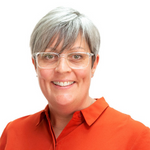 Dr Sam Debbage
Dr Sam Debbage
Director of Education and Research, Doncaster & Bassetlaw Teaching Hospitals NHS Foundation Trust.
When did you start in the NHS?
1994 (but 1991 as a student nurse).
Why did you choose to work in the NHS?
The NHS values and behaviours aligned to my own
Describe what you do in 100 words:
I strategically lead on education and research across a medium sized acute Trust (~6,500 strong workforce), alongside taking a lead role in capacity building within a large research study across Yorkshire and the Humber. Both roles require me to lead work across organisational boundaries with the aim of improving organisational performance to benefit the people we serve. I need a comprehensive understanding of the NHS, wider education and research partners including further and higher academic institutes, Health Education England, and the National Institute for Healthcare Research. It’s essential that I work closely with senior leaders to ensure that we support and prioritise the development of our people aligned to our overall workforce needs for today and the future.
What do you enjoy most about your role?
I enjoy working with people, across a number of organisations and on different agendas with the aim of making a difference to people’s lives
How would you describe the NHS in one word?
Amazing.
 Shahima Begum
Shahima Begum
Communications and Engagement Lead for Research, Bradford Teaching Hospitals NHS Foundation Trust.
When did you start in the NHS?
June 2014.
Why did you choose to work in the NHS?
I chose to work in the NHS because I wanted to give back to my community and work for an organisation whose sole purpose is to help others.
Describe what you do in 100 words
As the communications and engagement lead for research, I ensure that the work of the Bradford Institute for Health Research (BIHR) at Bradford Teaching Hospitals NHS Foundation Trust is publicised and available to the public. This includes delivering communications strategies for the City of Research, NIHR Applied Research Collaboration Yorkshire and Humber, NIHR Patient Recruitment Centre Bradford and the Yorkshire and Humber Improvement Academy.
Through management of our websites, social media and other channels, I promote the life-changing and leading research taking place at our hospitals and beyond. One of my key focuses is highlighting how research impacts the health of our community via the City of Research – Research As One initiative.
What do you enjoy most about your role?
The people I work with at the Bradford Institute for Health Research are key to why I love my job so much. It’s an incredibly supportive and kind environment here and this has allowed me to gain new skills and grow my career in this way.
I also enjoy how people-focused my job is – the NHS as a whole is very people-focused. And I’m just so grateful to be in a position where I’m communicating with others daily.
How would you describe the NHS in one word?
Hard-working.
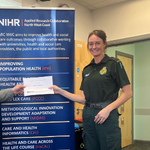 Michelle Waddington
Michelle Waddington
Paramedic, North West Ambulance Service, Blackburn Station East – Lancashire.
When did you start in the NHS?
I started in the NHS 20 years ago as a Physiotherapist Assistant at South Shore Hospital in Blackpool.
Why did you choose to work in the NHS?
I chose to work for the NHS as I wanted to help people. I completed a Sports Therapy Diploma at college. The work I did was really interesting but seeing the Ambulance Service Patient Transport colleagues bring my patients in for day hospital or physio treatment, I had a talk with them about their job. It looked interesting and I loved what I heard. So, I took the opportunity and applied for a Patient Transport position and was successful. I started in the Ambulance Service in March 2006 and have never looked back. I worked my way from Patient Transport to a qualified Technician and then in 2015 I qualified at UCLAN as a Paramedic.
Describe what you do in 100 words
As a Paramedic, I attend to 999 calls. My role is to assess patients, treat any symptoms like pain, diagnose medical conditions and administer medications where required. We also refer many patients to community services, out-of-hours services or hospital wards.
I have recently been accepted onto a Data Science Research Internship with NIHR Applied Research Collaboration North West Coast. I have been working on a service evaluation on end-of-life patients’ inequalities receiving paramedic care. My aim is to use NWAS (North West Ambulance Service) data to understand how many end-of-life patients we have attended to in a 12-month period and if any of their inequalities, for example, demographics, affect their care. From this information, I aim to improve our end-of-life services for these patients, produce a report for NWAS and publish any findings in a peer-reviewed academic journal.
What do you enjoy most about your role?
I love my job as a Paramedic as I get to meet and help people, sometimes in the most difficult, hardest and possibly the scariest times of their lives. It is my job to help, reassure them and provide each patient with the best care.
How would you describe the NHS in one word?
Skilful.
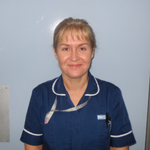 Louise Jones
Louise Jones
Lead Community Research Nurse Northumbria Healthcare NHS Trust, ENRICH senior nurse ARC North East and North Cumbria (NENC), ARC Practice Fellow NENC.
When did you start in the NHS?
December 1988.
Why did you choose to work in the NHS?
My nanna died at home, she was cared for by her family and the district nursing team. That experience had an impact and I decided to become a nurse working in the NHS.
Describe what you do in 100 words
I have been awarded an ARC (Applied Research Collaboration) Practice Fellowship for two years – a hugely exciting opportunity to develop my skills and knowledge while helping develop projects important to practice.
As the Lead Community Research Nurse at Northumbria Healthcare NHS Trust, I support nurses, midwives and allied health professionals to engage in research across community services. I am an alumnus of the NIHR 70@70 Senior Nurse Research Leaders, a group that keeps me networked with colleagues across England.
As the ENRICH (ENabling Research In Care Homes) Senior Nurse with the CRN across North East and North Cumbria, I support care home’s staff, residents, families and friends to engage with research.
What do you enjoy most about your role?
I like hearing people’s stories, what’s important to them and why. I like problem-solving and learning new things that come with my roles. I am passionate about the importance of engaging health and social care staff and patients in research. And I like the variety, no two days are the same.
How would you describe the NHS in one word?
Essential.
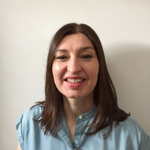 Laurie Cave
Laurie Cave
Specialist Children’s Dietitian at Leeds Teaching Hospitals NHS Trust and Research Fellow at NIHR Yorkshire and Humber Applied Research Collaboration (YHARC), hosted at Bradford Teaching Hospitals NHS Foundation Trust.
When did you start in the NHS?
December 2004.
Why did you choose to work in the NHS?
To have the opportunity to support and improve people’s health and care.
Describe what you do in 100 words
I spend half of my time working clinically and half doing research.
Clinically, as part of a large multidisciplinary team, I provide specialist care to children with cystic fibrosis. Principally, I support them to eat foods that are just right for them, alongside managing enzyme replacement, so that (as well as other things) they gain weight and grow.
Research wise, having recently completed a PhD through an HEE-NIHR Fellowship, I am now part of a research team supporting multiple projects across YHARC research themes. A current project is in collaboration with other Applied Research Collaborations, exploring how to maximise benefits to health and care staff involved in research.
What do you enjoy most about your role?
The amazing people – the teams I work in, who we work with, and for.
How would you describe the NHS in one word?
Committed.
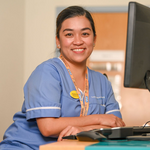 Pauline Joyce Aspa
Pauline Joyce Aspa
Research Nurse, Torbay and South Devon NHS Foundation Trust.
When did you start in the NHS?
January 2019.
Why did you choose to work in the NHS?
3 years ago, I choose to work in the NHS to start a new adventure here in the United Kingdom with my then fiancé, now husband. We have been working as registered nurses for 7 years in our home country, the Philippines. We both thought that moving to the UK and working for the NHS would help us grow not only professionally but would also allow for our personal growth. We were also encouraged by some of our friends who have had the privilege of working in the NHS before us.
Describe what you do in 100 words
I am responsible for setting up observational and interventional research studies. As a research nurse, I manage the delivery of the study with the study and clinical teams. It is our responsibility to obtain informed consent from patients or their families and recruit them into studies. We always prioritise the patient’s safety.
I actively promote research. Torbay Hospital is part of the South West Peninsula Local Clinical Research Network and I am involved in the Critical Care Community of Practice. This is a platform where sites across the South West region share and discuss strategies to improve critical care studies across the region.
What do you enjoy most about your role?
I feel proud and excited to be working in research for the NHS. All the projects we work on can shape clinical best practice and change health care for years to come. I love working alongside a smart, creative and passionate group of people, sharing the same goal and contributing to the advancement of healthcare.
How would you describe the NHS in one word?
Inclusive.
 Prince Neil Songsong
Prince Neil Songsong
Senior Clinical Research Practitioner, St John’s Institute of Dermatology, Guy’s and St Thomas’ Hospital NHS Foundation Trust.
When did you start in the NHS?
May 2013
Why did you choose to work in the NHS?
I chose to work in NHS because it provides excellent training and support for its employees in developing individual unique skills. I believe in its core values and, by applying these to my everyday work, I become a stronger person who can handle high-pressure situations. Working in the NHS, I developed conversational skills, self-knowledge, confidence, determination and resilience, and the best thing is that there’s always more to learn.
Describe what you do in 100 words
I work as a senior clinical research practitioner at dermatology clinical trials at Guy’s Hospital. It is an interesting combination of clinical and research responsibilities. I am the lead study practitioner for commercial trials specialising in dermatology. I support clinical research studies and colleagues on a daily basis. My role is to ensure that the clinical trial clinic runs smoothly. I act as the main point of contact for the study principal investigator and sponsors. I am involved in ensuring that the research undertaken safeguards the well-being of our patients. I identify and recruit new patients for new studies.
What do you enjoy most about your role?
I work in a very diverse, professional and friendly department. As well as helping patients to improve their quality of life, the most enjoyable part of my role is the interaction and my working relationship with my colleagues; we build relationships while helping patients to get better. The people who work in the NHS are the heart and soul of the institution and I am proud to say that I am part of this amazing and hard-working group of individuals; we share the same vision and care for our patients. I know that we change people’s lives daily and it feels good that it is part of what we do.
How would you describe the NHS in one word?
Dynamic.
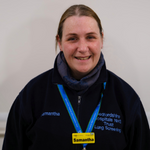 Samantha Glasper
Samantha Glasper
Targeted Lung Health Check Administration Lead and Data Quality Analyst, Luton & Dunstable University Hospital – Bedfordshire.
When did you start in the NHS?
2018.
Why did you choose to work in the NHS?
I worked in education when my children were young as this suited our family life. Once they were older and more independent, I made the decision to start a new career. I chose the NHS as I wanted to work in an area where I felt I would be making a valuable difference to people in need.
Describe what you do in 100 words
I am responsible for the administration and data quality of the targeted lung health checks programme – a screening programme for smokers and ex-smokers aged between 55 to 74 years. The purpose of the programme is to diagnose lung cancer early to provide an improved prognosis for patients as lung cancer often does not show symptoms until it is in the later stages. As a new screening programme, we are required to provide a large amount of data internally and externally, particularly in relation to the viability of the programme and the impact it is having.
What do you enjoy most about your role?
I enjoy seeing first-hand the difference our programme is having on patients who may have otherwise had a less positive outcome from the diagnoses we have made. The programme has successfully diagnosed many other conditions as well as lung and other cancers.
What would you say to someone thinking about a career in the NHS?
Working for the NHS is hugely rewarding and there are a vast number of varied jobs available as the organisation is so large. There are many opportunities to work in different areas.
How would you describe the NHS in one word?
Crucial.
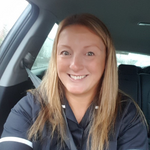 Jillian Wallis
Jillian Wallis
Associate Director, Halton Community Services, Bridgewater Community Healthcare NHS Foundation Trust – North West England.
When did you start in the NHS?
I started in the NHS in 1998 when I qualified as an occupational therapist.
Why did you choose to work in the NHS?
I chose to work in the NHS because I wanted to help people and make a difference in their lives.
Describe what you do in 100 words
I have overall responsibility for the high quality and safe delivery of a number of community services within Halton. This includes the urgent treatment centre in Widnes and our community nursing services. I also oversee our podiatry, speech and language therapy, neurosciences and urgent community response teams. My role is to drive forward innovation and improvement, working collaboratively with colleagues across our organisation.
What do you enjoy most about your role?
I really enjoy working with the clinical services, listening to and observing all the amazing work they do.
What would you say to someone thinking about a career in the NHS?
My career in the NHS has enabled me to explore lots of different and varied roles. I would say to anyone thinking of a career in the NHS just take a leap, the NHS is full of exciting opportunities.
How would you describe the NHS in one word?
Fantastic.
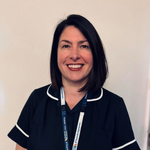 Susan Burton
Susan Burton
Deputy Chief Nurse, Bridgewater Community Healthcare NHS Foundation Trust – North West England.
When did you start in the NHS?
April 1991.
Why did you choose to work in the NHS?
The opportunity to work with children, families and communities to reduce health inequalities and support individuals to live healthier lives for longer.
Describe what you do in 100 words
Every day is different. I work within the community, so work over a large geographic area, in a community trust which provides a diverse range of services from adult and children community nursing to intermediate care (time-limited, short-term support). I provide professional leadership, supporting nursing and other staff to bring about service transformation and improved patient care.
What do you enjoy most about your role?
I have the most amazing role. I have the privilege of working with clinical teams and operational colleagues to deliver safe and effective care to the population we serve. The best part of my job is listening to our clinical teams, hearing about the compliments they receive, patient stories and how their work is making a difference to people’s lives.
What would you say to someone thinking about a career in the NHS?
Do it! You will have the most rewarding career and be part of the NHS family.
How would you describe the NHS in one word?
Proud.
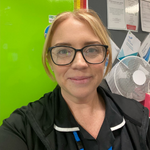 Helen Wakefield
Helen Wakefield
Clinical Lead, Widnes Urgent Treatment Centre, Bridgewater Community Healthcare NHS Foundation Trust – North West England.
When did you start in the NHS?
September 2005.
Why did you choose to work in the NHS?
I have always wanted to be a nurse and be in a caring profession. I wanted to make a difference to others by being there for them and helping them in their time of need.
Describe what you do in 100 words
I clinically support the staff, whether that be by reviewing patients, prescribing medications, reviewing x-rays or discussing clinical guidelines to ensure patients receive high standards of care.
What do you enjoy most about your role?
I enjoy the variety of what each day offers. No two days are the same. I enjoy the new challenges that I face each day.
What would you say to someone thinking about a career in the NHS?
The NHS and the careers it can offer are amazing. The opportunities are endless and can lead you down many exciting paths.
How would you describe the NHS in one word?
Dedicated.
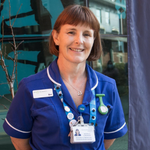 Bev Longhurst
Bev Longhurst
Senior Research Nurse, Portsmouth Hospitals University NHS Trust – Hampshire.
When did you start in the NHS?
July 1992, when I started my nurse training.
Why did you choose to work in the NHS?
Initially, I didn’t give it too much thought. I just wanted to be a nurse! Very soon I realised I wanted the opportunity to help others, from diverse backgrounds and situations, in a really varied environment. There are so many departments and specialties to choose from: I knew I’d find something that really suited my skills and personality.
Describe what you do in 100 words
Although I am technically part of the wider research team within the hospital, in 2021 during the COVID-19 pandemic, I helped to set up and run a community research hub in the city of Portsmouth, enabling residents to take part in vaccine research without the need to travel to the hospital.
As one of the senior nurses, I lead and work alongside a fantastic team of professionals providing care to trial participants, both on-site and with virtual/phone study follow up. It’s great to have this opportunity to embed clinical research within the community that we serve.
What do you enjoy most about your role?
It’s great to meet new potential participants and support them through the journey to take part in research projects. My role is a perfect mix of patient contact and supporting and leading my team.
What would you say to someone thinking about a career in the NHS?
It is a great chance to develop your own skills while providing an essential service to those who need it. You will never be bored!
How would you describe the NHS in one word?
Special.
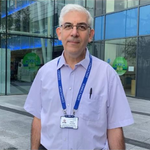 Dr Mark Roland
Dr Mark Roland
Respiratory Consultant, Deputy Medical Director, Portsmouth Hospitals University NHS Trust – Hampshire.
When did you start in the NHS?
August 1990
Why did you choose to work in the NHS?
Working in healthcare was a passionate vocation for me from a young age, very much wired into my DNA. I have always worked for the NHS as I’m passionate about the equality of care we strive to offer for all.
Describe what you do in 100 words
At my core I’m a respiratory consultant with an interest in lung cancer and end of life care. I enjoy working in ward teams with the challenges and rewards that brings. As Deputy Medical Director, I have the privilege of providing clinical support and leadership in a wide variety of domains including mental health, mortality, infection prevention and control, patient safety and clinical ethics, amongst others. This diversity allows me to interact with a wide range of stakeholders, striving to improve the quality and safety of the care we deliver, trying to bring kindness and compassion into our conversations.
What do you enjoy most about your role?
The astonishing variety, the intellectual challenges, the humanity, the camaraderie, the privilege of providing care for those most in need, and being able to bring patience, calm and kindness into some of the most stressful situations. There is never a day that goes by without my learning something new after over 30 years in practice.
What would you say to someone thinking about a career in the NHS?
There are very few careers that will bring the same breadth of experience, privilege through being able to provide care and support, and immersion in the human experience as working as a health care professional in the NHS. After over 30 years my career remains varied, challenging, educational and rewarding. I could not recommend this exciting journey more highly to others.
How would you describe the NHS in one word?
Inspiring.
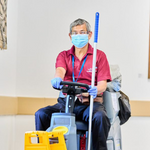 Ricky Yung
Ricky Yung
Domestic Assistant, Milton Keynes University Hospital – Buckinghamshire.
When did you start in the NHS?
I joined in 2001 after moving to Milton Keynes from Hong Kong following my retirement as a sergeant in the British Army.
Why did you choose to work in the NHS?
A former Army colleague of mine had moved here and recommended it as a place to work, so I applied! I am now retired but I love the place so much I work two days a week on the hospital bank (in-house agency).
Describe what you do in 100 words
I am a member of the hospital’s large domestic team which is responsible for ensuring that the hospital’s very high standards of cleanliness are maintained at all times. I use a ride-on cleaning machine to ensure that all public areas are kept spotlessly clean. As I spend a lot of my working day cleaning the hospital corridors, it means I am also able to help when any visitors are lost and need directions to help them get to wards and departments. I have no idea how many miles I travel around the site in a day, but it is certainly a lot!
What do you enjoy most about your role?
I enjoy meeting people and I meet so many of them every day, from other staff to patients, visitors and volunteers. It is a very friendly place to work.
What would you say to someone thinking about a career in the NHS?
I would say that it is worth investigating all the possible career options because there are so many routes to choose. I really enjoy working in the NHS.
How would you describe the NHS in one word?
Great!
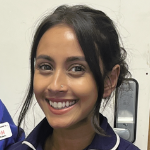 Shaan Meeda
Shaan Meeda
Practice Retention Midwife, Milton Keynes University Hospital – Buckinghamshire.
When did you start in the NHS?
I started at Milton Keynes University Hospital in 2012 as a student, and October 2015 as a qualified midwife.
Why did you choose to work in the NHS?
I chose to be a midwife and work within the NHS because I enjoy looking after people. It was only when I started working within the organisation that I realised the impact the NHS has on patients and staff, and that we have the platform to support change and ensure the experience patients have is positive and the care we provide is safe.
Describe what you do in 100 words
I support our newly qualified midwives throughout their preceptorship period, which is a structured period of transition from being a student to newly qualified practitioner. Preceptorship helps new health professionals to translate and embed their knowledge into practice.
What do you enjoy most about your role?
Supporting newly qualified midwives in the clinical areas and giving them the tools and encouragement to succeed. I have a great sense of job satisfaction, particularly when individuals achieve something they thought they couldn’t.
What would you say to someone thinking about a career in the NHS?
Do your research, talk to staff and attend career days to ensure you are fully informed about the job role you are interested in. And if it is – do it!
The NHS has allowed me to flourish and develop personally and professionally. I still love working as a midwife nearly eight years on.
How would you describe the NHS in one word?
Irreplaceable.
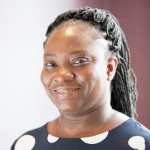 Sarah Adomah
Sarah Adomah
Lead Breast Clinical Nurse Specialist, The Royal Marsden NHS Foundation Trust – Chelsea, London.
When did you start in the NHS?
2004.
Why did you choose to work in the NHS?
I was born in Ghana where I initially trained to be a teacher. However, I decided to relocate to the UK in my early 20s and studied nursing. This is because I have an innate passion to help and care for people. After completing my training in 2004, my first nursing job was at The Royal Marsden and, apart from three years at a different London trust in 2011, I have worked here ever since.
Describe what you do in 100 words
I am the Lead Breast Clinical Nurse Specialist at The Royal Marsden in Chelsea, which involves both clinical responsibilities as well as managing the service and driving improvements. As a Clinical Nurse Specialist, I am the main point of contact for patients throughout their journey, from diagnosis to treatment and beyond. This involves providing practical and emotional support for patients and their loved ones. I also manage and lead the breast clinical nursing specialist team service across at The Royal Marsden in Chelsea, always ensuring appropriate service provision. As part of this, I represent the breast tumour group and The Royal Marsden at network and national level to influence the strategic direction of care issues.
What do you enjoy most about your role?
I enjoy driving diversity and inclusion in cancer care wherever possible. For example, in 2022, along with my colleague, Natalie Johnson, who is a breast and oncoplastic surgeon at The Royal Marsden, I was behind the launch of the UK’s first softies in a range of skin tones. A softie is a lightweight, fabric prosthesis that women with breast cancer are often given to wear in their bra after a mastectomy. Some women use a softie temporarily – before reconstructive surgery or before using a permanent silicon prosthesis. However, many women use their softie long-term, as they can be more comfortable than other options.
Having a mastectomy is often traumatic and, as I have heard from many women over the years, being given a softie in an inappropriate skin tone can make the experience even more upsetting. Women will often not use the product or feel self-conscious about it being visible – and may end up not wearing the clothes they want to.
Created in partnership with Nubian Skin thanks to funding from The Royal Marsden Cancer Charity, this new range comes in seven sizes of four colours: berry, cinnamon, caramel and café au lait. The products are currently available for Royal Marsden patients, but there are plans to roll them out more widely.
What would you say to someone thinking about a career in the NHS?
I would encourage them to pursue a career of their choice within the NHS. As an organisation, there are a number of opportunities for both personal and professional development. It is the lifeline of the nation and an opportunity to be a part of it is invaluable.
How would you describe the NHS in one word?
Incredible.
 Dr Alison Tree
Dr Alison Tree
Consultant Clinical Oncologist, The Royal Marsden NHS Foundation Trust – Sutton, South London.
When did you start in the NHS?
I started work as a junior doctor in the NHS in 1998 and my first job was in orthopaedic surgery.
Why did you choose to work in the NHS?
Having completed six years at medical school, I had been inspired by many wonderful doctors, nurses and other healthcare professionals who I had learned from. I wanted to be like these people and care for those going through a tough time with their health. I also felt a great debt to those who had given me the chance to become a doctor and to those who had given up their time, mostly for free, to train me.
Describe what you do in 100 words
I treat prostate cancer, which is a spectrum from very indolent (just needs monitoring) to life-limiting (needs aggressive treatment). I use a range of treatments including targeted radiation therapy, hormone therapies and chemotherapy to maximise cure rates and keep men alive for longer. I lead research studies seeking better ways to cure prostate cancer with radiotherapy.
What do you enjoy most about your role?
I enjoy getting to know my patients and encouraging as many as possible to enter clinical trials so we can continue to see better outcomes for patients year on year. I enjoy feeling part of a global community seeking to stop cancer robbing so many men of quality and quantity of life – we have made a lot of progress but have much further to go. I love coming up with new ideas for better treatments, and these ideas often come from the men I look after. The best research ideas stem from recognising a problem and trying to find treatments which can solve that problem.
What would you say to someone thinking about a career in the NHS?
I am so proud to work in the NHS, which is one of the most amazing things about living in the UK. We can provide world-leading care, using the best treatments for cancer, to everyone who comes through the door regardless of who they are or how much money they have. At its best, the NHS offers excellent care and kindness to every single member of our society. I have been a patient as well as a doctor in the NHS and have always been overwhelmed by the dedication of the teams who have cared for me and my family. The NHS is globally recognised as a leader in cancer research, largely due to the diligence, dedication and hard work of many of the amazing NHS staff who go above and beyond to deliver innovative treatments. I am lucky to work here.
How would you describe the NHS in one word?
Kind.
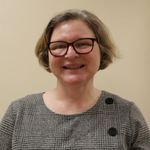 Tanith Ellis
Tanith Ellis
General Manager, Children’s Services, Bedfordshire Hospitals NHS Foundation Trust.
When did you start in the NHS?
1985.
Describe what you do in 100 words
I am the general manager leading children’s services which includes paediatrics and neonatal services across Luton and Dunstable, and Bedford Hospitals. I am part of a leadership team for the two services with a Head Nurse and clinical directors. I have operational accountability for the safe and effective provision of inpatient and outpatient care, as well as strategic responsibility for children and adolescents across the service reporting directly to the leadership team. The role is challenging but extremely rewarding.
What do you enjoy most about your role?
The variety and reward of working with a dedicated team providing such an essential role supporting children from birth.
What would you say to someone thinking about a career in the NHS?
Take the opportunity. It has so much to offer in terms of learning and development.
How would you describe the NHS in one word?
Amazing!
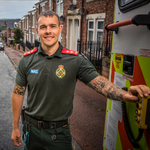 Chris Kirkbride
Chris Kirkbride
Paramedic Clinical Team Leader, North East Ambulance Service – Sunderland.
When did you start in the NHS?
2014.
Why did you choose to work in the NHS?
When I left the army I knew I needed a new challenge, I wanted to work for an organisation that offered stability, close to my family and in a job that offered a sense of satisfaction knowing I was making a difference caring for people in my community. This is a rewarding career with great opportunities for development and progression.
Describe what you do in 100 words
I am very honoured and fortunate to lead an amazing team of paramedics, technicians and emergency care assistants. I currently respond to 999 incidents where an operational command presence (ie senior person) is required or where direct clinical support is needed.
What do you enjoy most about your role?
I enjoy seeing the development of my team, supporting them through the good times and the bad.
What would you say to someone thinking about a career in the NHS?
It isn’t an easy job, it’s very demanding and challenging. However, if you are passionate about making a difference, the NHS offers opportunities for everyone no matter what your interests, skills or qualifications. You will become part of a talented and dedicated team of people committed to providing the best care for patients.
How would you describe the NHS in one word?
Selfless.
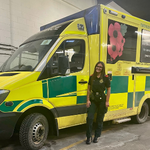 Grace Dickinson
Grace Dickinson
Newly Qualified Paramedic, North East Ambulance Service – Sunderland.
When did I start the NHS?
January 2022.
Why did I choose to start in the NHS?
As a newly qualified paramedic, I am passionate and take pride in providing my patients with high quality care. The NHS is the best environment to make a positive difference to the lives of our patients and to give back to the community.
My passion stemmed from watching the healthcare professionals care for my late brother who suffered with cerebral palsy. I witnessed first-hand the high-quality care that doctors, nurses and paramedics provided my brother to enhance his quality of life, support my family and ease pressure from my parents. As a family, we are extremely grateful for the NHS, and I hope I can emulate this experience for my own patients and their relatives.
What do I do?
There is no ‘typical’ day as a paramedic. Every day, I’m required to use my judgement and skills to assess a patient’s condition quickly and thoroughly and, at times, make life-saving decisions. One of the best parts of the job is meeting new people from all walks of life, offering support, advice and being a friendly face to help improve someone’s day. Work is very varied as a paramedic, and each day brings a new challenge, from delivering babies to resuscitating patients. Some days are great, others can take a toll. But the good days outshine the bad, which is what keeps me passionate!
What do I enjoy most about my role?
The ambulance service is a very fast-paced environment. No two days are the same, you must use your initiative and learn a lot on the job. It’s a steep learning curve, but I work with a fantastic and experienced team which has accelerated my learning and made the experience enjoyable.
I consider it a privilege to be welcomed into people’s homes when in uniform, no matter the hour of day. This career has provided me with a diverse skillset and has helped round me as an individual. I am very excited to continue this rewarding career path and see where it takes me.
What would I say to someone thinking about a career in the NHS?
Working within the NHS, you will without a doubt make a big difference to the lives of your patients by doing even the smallest things. Not only this, every day you are surrounded by highly skilled, amazing and like-minded people, who all combine to form an exceptionally talented team all with the same goal; to provide high quality, patient-centred care. The NHS provides an opportunity to grow personally and professionally. You will be working in an exciting, forward thinking, and fast-moving environment. There’re over 350 careers in the NHS, a career to suit everyone, which all come with tangible benefits and so many avenues of progression.
How would you describe the NHS in one word?
Committed.
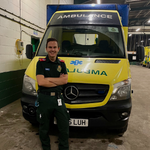 Paul Purvis
Paul Purvis
Paramedic, North East Ambulance Service – Sunderland.
When did you start in the NHS?
June 2017.
Why did you choose to work in the NHS?
I choose the NHS – and the ambulance service – to help people in their time of need, whatever that need may be. Those of us that work for the NHS are very privileged and fortunate to work within the greatest institution in this country, one in which as a nation we should be very proud and grateful for.
Describe what you do in 100 words
The day-to-day role of a frontline paramedic working on a double crewed emergency ambulance is varied and you never know what’s around the corner. The day starts with some basic checks to ensure vehicle readiness, swiftly followed by being allocated to a 999 call. The incidents attended could literally be anything, from a patient with chest pain, to someone struggling for breath, to cardiac arrest, requiring immediate life-saving interventions.
What do you enjoy most about your role?
The best part about being a paramedic is the ability to help people in many ways, from the smallest of gestures to the life-saving treatments. There is no greater privilege in life to help others in their most desperate times and be part of the team that can save the life of another.
What would you say to someone thinking about a career in the NHS?
Do it, it isn’t always easy but the job satisfaction at times is second to none. We work alongside the most caring, compassionate, and talented colleagues without whom the NHS wouldn’t be the NHS.
How would you describe the NHS in one word?
Astonishing.
Health Advisor, Emergency Operations Centre, North East Ambulance Service – Newcastle upon Tyne.
When did you start in the NHS?
January 2020.
Why did you choose to work in the NHS?
I wanted to be able to help the community when they need it most. I feel it’s important to care and look out for other people and ensure they know there is always someone to call who will listen and support, even in the most trying times.
Describe what you do in 100 words
My role includes a wide variety of calls. I can take 111 calls, 999 calls, urgent jobs, hotline calls and advice calls from colleagues, all in the same shift. My job is to ascertain the most important details of the patient who is calling, including the address of the emergency and the exact details of the situation to ensure I can get the most appropriate response as soon as possible. I speak with members of the public, healthcare professionals and other emergency service employees every day who are all supporting the local and wider communities.
What do you enjoy most about your role?
I enjoy being able to help others when they need it most. I’ve learnt a lot about myself and I know it has allowed me to become more resilient and gain a more in-depth understanding of the world we live in and the effects of decision making along the way.
What would you say to someone thinking about a career in the NHS?
Ensure you care naturally about other people and their wellbeing, and that you feel passionate about making a difference.
How would you describe the NHS in one word?
Godsend.
GP partner and Vice Chair of Sandwell Local Commissioning Board – Sandwell, West Midlands.
When did you start in the NHS?
2007.
Why did you choose to work in the NHS?
I wanted to gain satisfaction in knowing that I am caring for people from all backgrounds – regardless of age, gender, cultural background, or state of health. I was aware that if I joined the NHS, I could choose different fields of work and advance my skills in general practice and leadership.
Describe what you do in 100 words
I am a GP partner. I review patients of all backgrounds regarding their health concerns. I treat a whole range of illnesses, provide health screening and advice. My job can often involve long hours, dealing with many different patients and multi-tasking lots of priorities, but I can’t think of anything more rewarding. I also teach medical students – the future workforce of the NHS – which is a great passion of mine. In addition, I am the vice chair of the Sandwell Local Commissioning Board, which gives me the opportunity to address the wider care needs of my local population.
What do you enjoy most about your role?
I enjoy general practice as I feel I am making a real difference to people’s lives. The NHS is continuously evolving to improve the care we deliver to our patients: no day is ever the same.
What would you say to someone thinking about a career in the NHS?
It is one of the most rewarding careers, knowing you are helping others in need and contributing to their health and wellbeing. There are so many opportunities in the NHS to learn new skills and advance your career.
How would you describe the NHS in one word?
Dynamic.
GP – Sandwell, West Midlands.
When did you start in the NHS?
2006.
Why did you choose to work in the NHS?
Having worked in healthcare systems in other parts of the world, I realised that the NHS was hugely unique in striving to provide healthcare access to people on an equitable basis regardless of their background – this resonated with me as this was one of the major drivers for me to become a doctor.
Describe what you do in 100 words
I wear several hats now, but my main role is a GP. I am a GP partner at Tame Valley Medical Centre and I am responsible for providing healthcare services to over 4,500 people in the local area.
What do you enjoy most about your role?
I have been working in the same GP practice for 12 years and take pride in knowing my patients as individual people. The children I saw 12 years ago are now young adults, and the young adults are now parents and I see their children – this cycle carries on and it is this continuity of care that I enjoy the most.
What would you say to someone thinking about a career in the NHS?
It is hard work but if you choose a field you are passionate about, then it is definitely rewarding. I understand the immense pressure we all are under at the moment, but what keeps us going is the incredible difference we can make to the lives of the people around us.
How would you describe the NHS in one word?
Lifesaving.
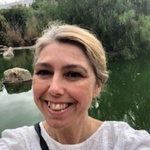 Davinia George
Davinia George
Head of Nursing and Planned Care, Your Health Partnership Primary Care Network – Sandwell, West Midlands.
When did you start in the NHS?
1992.
Why did you choose to work in the NHS?
I am one of those people who just always wanted to be a nurse. It is all a bit cliché, but I was attracted by the opportunity to work with patients on an individual basis and make a small difference to those who felt unwell as well as to be a part of something that offered hope, healing and support.
Describe what you do in 100 words
I am Head of Nursing and Planned Care for a GP practice covering seven sites across Sandwell (also known as Your Health Partnership Primary Care Network). I lead the general practice team, so I am responsible for the rotas, recruitment and ongoing development and quality of that team. I am also responsible for ensuring that all patients who have a long-term condition are offered regularly reviews, as well as offering vaccinations such as flu and Covid vaccines.
What do you enjoy most about your role?
I genuinely love the team of people I work with. They are dedicated to providing the best possible care for our local population, even when it can be very challenging.
How would you describe the NHS in one word?
Priceless.
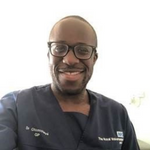 Dr Bukola Olomolaiye
Dr Bukola Olomolaiye
GP, Coalway Road Surgery – Wolverhampton, West Midlands.
When did you start in the NHS?
2010.
Why did you choose to work in the NHS?
The NHS has given so much to my family and me. I was inspired by those that work within it growing up and so the opportunity to be like them and have an impact on my community is what motivated me to work for the NHS.
Describe what you do in 100 words
As a GP, I have the privilege of caring for people from not long after they are born right through to the end of their lives. Working in the NHS, I get to share those moments with people from every imaginable background, meeting people that I would never normally meet along the way. Building relationships with these patients based on trust and an ability to provide them with the care that they need rather than how much money they have is one of the principles that makes me most proud to be a GP in the NHS.
What do you enjoy most about your role?
I enjoy building relationships with patients and colleagues over time. I find this is the cornerstone to providing good quality care in general practice and it is the most rewarding aspect of my job.
What would you say to someone thinking about a career in the NHS?
I would say to seize the opportunity to work in an organisation where you will be challenged but also have the chance to see the benefits of your hard work.
How would you describe the NHS in one word?
Resilient.
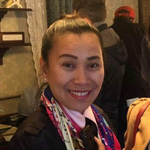 Louraine Macaludos
Louraine Macaludos
Healthcare Support Worker, North Middlesex University Hospital NHS Trust – London.
When did you start in the NHS?
I started working in the NHS in 2011. I first joined as a healthcare support worker in Whipps Cross Hospital and now I do the same at North Middlesex University Hospital. I joined North Middlesex University Hospital in February 2014 and I love working here as I live in the local area, and I have a brilliant manager and colleagues.
Why did you choose to work in the NHS?
I have always worked and enjoyed looking after and caring for people. We get to know them personally and you can see every day the good that you do for them. It is fulfilling seeing patients get better and hearing from their families of how thankful they are is a good feeling.
Describe what you do in 100 words
My job is to assist the nurses every day. I give the best care to the patients and work in a team. In my role, having good teamwork is so important. I help patients with their personal care, hygiene, food and nutrition and more.
What do you enjoy most about your role?
I love caring for people. You can see how grateful they are and how much they appreciate all the little things you do. It doesn’t matter what job you do or what role you play, you’re appreciated by patients and colleagues.
What would you say to someone thinking about a career in the NHS?
You should join. It’s like one big family, the workforce is really supportive. I would highly recommend it. I enjoy going to work every day. It helps me provide for my family but also still be a mum.
How would you describe the NHS in one word?
Incredible!
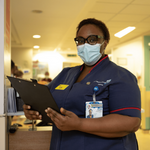 Lily Onoh
Lily Onoh
Emergency Department Matron, North Middlesex University Hospital NHS Trust – London.
When did you start in the NHS?
In May 2010, as a newly qualified nurse. Before that, I was a healthcare assistant, working through an agency, alongside my studies to become a nurse. I did most of my student placements at North Middlesex University Hospital and, when I graduated, I joined the emergency department (ED) as a newly qualified nurse. I have since worked my way up to become ED matron.
Why did you choose to work in the NHS?
When I was a teenager, my younger sister had appendicitis, and she was treated in Royal London Hospital. The nurse who looked after her was wonderful, and I decided there and then, aged 16, that I was going to be a nurse like her.
Describe what you do in 100 words
As matron my role includes looking after staffing, patient experience and liaison, making sure we comply with regulations and standards, safety – everything that makes the ED what it is. Recently, because it’s so busy, I’ve spent lots of time on clinical work. Being matron means balancing lots of different parts of nursing.
What do you enjoy most about your role?
Definitely the people. The team I work in – clinical staff, operational colleagues, and support services – we all support each other. It’s hard, especially recently because we’re so busy, but I do love my job. I also enjoy role-modelling what hard work and kindness can achieve – I want younger people to be able to look at me and think ‘I want to do that’.
What would you say to someone thinking about a career in the NHS?
You have to be passionate about people. It’s not for the faint hearted, but it’s definitely rewarding.
How would you describe the NHS in one word?
Multidimensional – the more you find out about it, the more there is to it.
Pauline Mardle
Primary Care Business Manager and Primary Care Director, North Middlesex University Hospital NHS Trust – London.
When did you start in the NHS?
1970.
Why did you choose to work in the NHS?
To earn while I saved to go to Drama School – that was the dream, but I am still here 53 years later. I am proud to work in Primary Care and do what we do every day.
Describe what you do in 100 words
I manage a GP surgery and am one of the Lead Managers across a Primary Care Network of nine practices. I also lead on one of the steering groups with a vision for developing and moving practices forward to work at scale. On a daily basis, I ensure the practice is running smoothly, manage safe staffing levels, recruitment, budgets, finance, work with stakeholders, manage patient flow, communication and more. One of my most recent achievements was being part of the team setting up our Covid Vaccination Centre from scratch.
What do you enjoy most about your role?
It is ever challenging and rewarding.
75 years of the NHS and it is hard to believe I have been working fifty-three of those in Primary Care!
When people ask if I have done the same job for all those years – it has never been static and there have been new challenges all the time. Having sat on many steering groups and councils to understand the bigger picture of the whole NHS system, I always give a shout out to General Practice who always rise to challenge when asked to do so and deliver fast and efficiently. No more so demonstrated than in recent Covid vaccination times, when we showed how we can step up and deliver. Our clinical staff are brilliant and our non-clinical staff just as important, organising and planning to ensure services and staff are there and patients are safe.
What would you say to someone thinking about a career in the NHS?
Be prepared to work hard, give a lot and be able to cope under pressure.
How would you describe the NHS in one word?
Committed.

